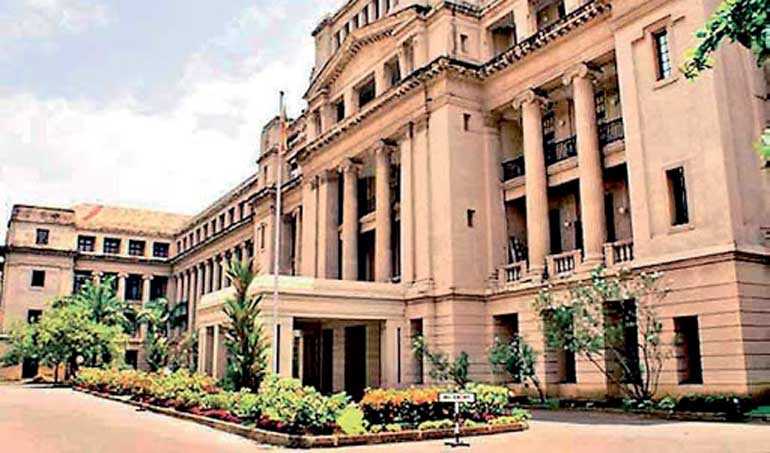Saturday Feb 14, 2026
Saturday Feb 14, 2026
Wednesday, 22 April 2020 04:07 - - {{hitsCtrl.values.hits}}

International rating agency Moody’s yesterday warned that while Asia had strong fiscal buffers to better withstand the impact of COVID-19, countries such as Sri Lanka with twin deficits and constrained policy space could see their creditworthiness decrease.
Asia had significantly stronger external and fiscal buffers compared with other emerging markets, which provided the region more space as a whole to deliver on policy easing, the rating agency said in its latest report.
However, the starting points differ quite a bit with frontier economies such as Mongolia (B3 stable), Pakistan (B3 stable) and Sri Lanka (B2 stable) on a weaker footing compared with higher-income economies such as Singapore, Hong Kong, Korea and Australia, the report warned.
“The coronavirus is exposing vulnerabilities in existing systems, and we expect policy space to be constrained for those with existing fiscal challenges or elevated external vulnerabilities, or both. Weaker global growth and heightened risk aversion in financial markets have led to significant capital outflows from the region.
“Countries with twin fiscal and current-account deficits are already experiencing bouts of currency weakness. Notably, for sovereigns that rely on external financing, such as frontier markets, this shift in sentiment will, if prolonged, pose a key threat to their creditworthiness. High indebtedness and limited access to funding already pose constraints to many of these countries,” it added.
For some larger emerging markets, including India, external risks are contained. However, the shock of a prolonged period of much weaker growth which policy support is unlikely to mitigate, will raise the debt burden from already high levels.
Another area of uncertainty will be whether increased government support will introduce contingent liabilities to the sovereign. Australia, Singapore and some other countries have announced financial support to airlines. Additionally, some extraordinary government-provided support is also likely for Chinese and Korean road operators.
Asia’s policy response will cushion but not fully offset the economic and financial fallout from the coronavirus outbreak. Governments across the region have been swift in putting in place policies to support businesses and workers amid the coronavirus outbreak. These efforts will help mitigate credit-negative pressures on companies, banks and the broader economy, but they will not fully offset the economic and credit damage.
The report observed sharply lower economic activity and fiscal expansion would be credit negative for sovereign credit profiles.
“Policy stimulus will shore up credit quality for larger companies in the region’s strategically important sectors. Among industries that are most sensitive to the economic downturn, we expect government support to be forthcoming for larger companies in sectors with strategic economic importance, or which benefit from explicit Government support, including airlines and oil and gas sectors.”
Countercyclical measures are unlikely to prevent deteriorating credit quality and, in some cases, outright defaults for smaller companies with weaker liquidity profiles.
Moody’s predicted Asia’s banking systems would face a much more difficult credit landscape. Weaker economic prospects and widespread financial market upheaval will translate into a more adverse credit landscape for the region’s banks in 2020 and 2021.
“The banking sector profitability will also decline as a result of higher loan-loss provisions related to deteriorating asset quality, lower net interest margins from lower policy rates and lower fee income on business activity.”
However, policy easing and liquidity injections by central banks will support banks’ access to funding and mitigate liquidity risks in the banking system. Moody’s also expect government support for larger, systemically important banks in the event of acute distress.